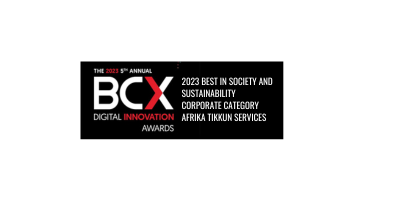LESCO (Light Electrical Switch Company) Manufacturing sets a standard for companies working with young people with disabilities. There are currently 64 individuals living with disabilities working in the organisation, 90% of whom are classified as youth. We chatted to LESCO’s CEO, Jonathan Shapiro, about what drives their vision for disability empowerment.
What was the inspiration behind making inclusion part of your organisational culture?
After years of economic difficulty that were largely due to the aftermath of Apartheid, my dad, David Shapiro, realised that the only way to make LESCO profitable and sustainable was to create a new business model that could stand the test of times. The model was based on a price per piece outsourcing model and founded on the premise that LESCO would only pay for quality-driven finished goods, rejecting anything sub-standard. To operate a scaled-down business and to give back to the community, David approached a non-profit organisation, a home of intellectually disabled persons in Johannesburg, to become the outsourcing partner of choice in the new assembly process. Since then we have 3 different assembly models, all of which provide work for people with disabilities. And the rest is history.
How have you seen this culture of inclusion within LESCO, grow over the years?
Firstly, we are SEDEX approved, which means we conform to the highest standard of responsible and ethical practises. This ensures our work environment is suitable for all our workers and includes the regular investment in skills development with all our staff. More recently we started LESCO Cares – an inhouse wellness programme that supports our disabled staff with the care they need and cannot access. The initiative began when we decided to shift our focus from purely an employment relationship but to a wellness relationship. We want to be able to offer them these services that are usually inaccessible. We wanted to be able to give them quality of life not only at LESCO, but in other aspects of their lives too. For us, inclusion shouldn’t just stop in the workplace. We work with an occupational physiotherapist and speech therapist on a weekly basis who provides rehab, speech therapy and physio sessions to our disabled staff with disabilities that range from cognitive to physical impairments. We see LESCO Cares as an extension of our business.
Please relate one or two memorable stories relating to the impact you’ve made on a person living with disability.
Lebogang Mashego, one of LESCO’s long-standing staff members, contracted polio when she was eight years old. In a recent video we produced of our factory, we spoke with Lebo about her experience. According to Lebohang, “If I hadn’t been working here, I would have been sitting at home earning nothing and doing nothing. Here, they treat us like we have no disability, and this gives us the confidence we need in life. Our dignity is restored.”
Watch the below video
How well is South Africa doing in regards to empowering people with disabilities within the workplace?
We believe more can be done and would offer our experience and time to assist wherever possible. As President Cyril Ramaphosa said during last month’s Economic Reconstruction and Recovery speech: the only way to rebuild and grow South Africa’s economy is to lower our reliance on imports and increase the quantity, quality, and value of our exports. According to the president, producing 10% of what we import ourselves could add 2% to our annual economy. This estimate excludes the economic benefits of job creation, especially amongst those who have always been unemployed, and reliant on state support. Every single person who no longer relies on government grants because they have gained meaningful employment is a win for the private sector, the economy and country at large. To help educate and encourage companies to be more inclusive, we would suggest webinars, focus groups and educational programs, both in the private and government sectors.
What advice can you give to organisations wanting to create a work environment that’s more disability aware?
It starts with the right attitude toward disability and inclusion. This includes doing the research to better understand the spectrum of disabilities, both cognitive and physical, and the associated limitations and strengths these pose in the workforce. Thereafter, test different systems that incorporate people with disabilities and monitor this to see how these actually benefit the company’s bottom line. Disabled people are not unable – they are differently able, and it is up to the culture (leadership) and environment (physical space) to accommodate them. We need to collectively change this narrative (stigma).



